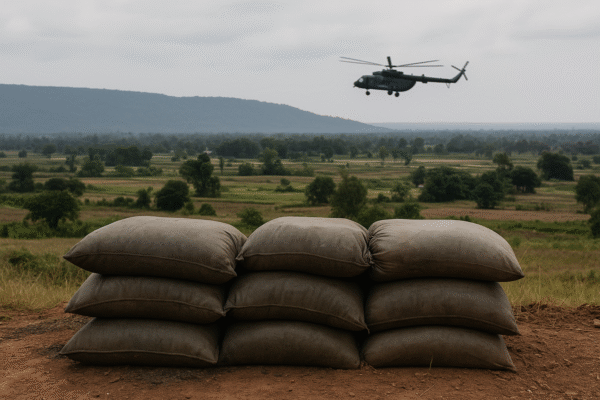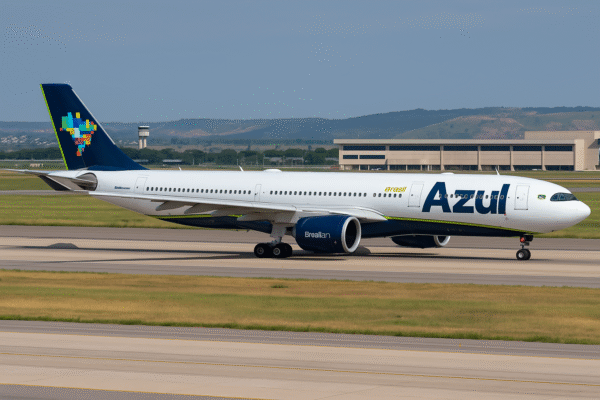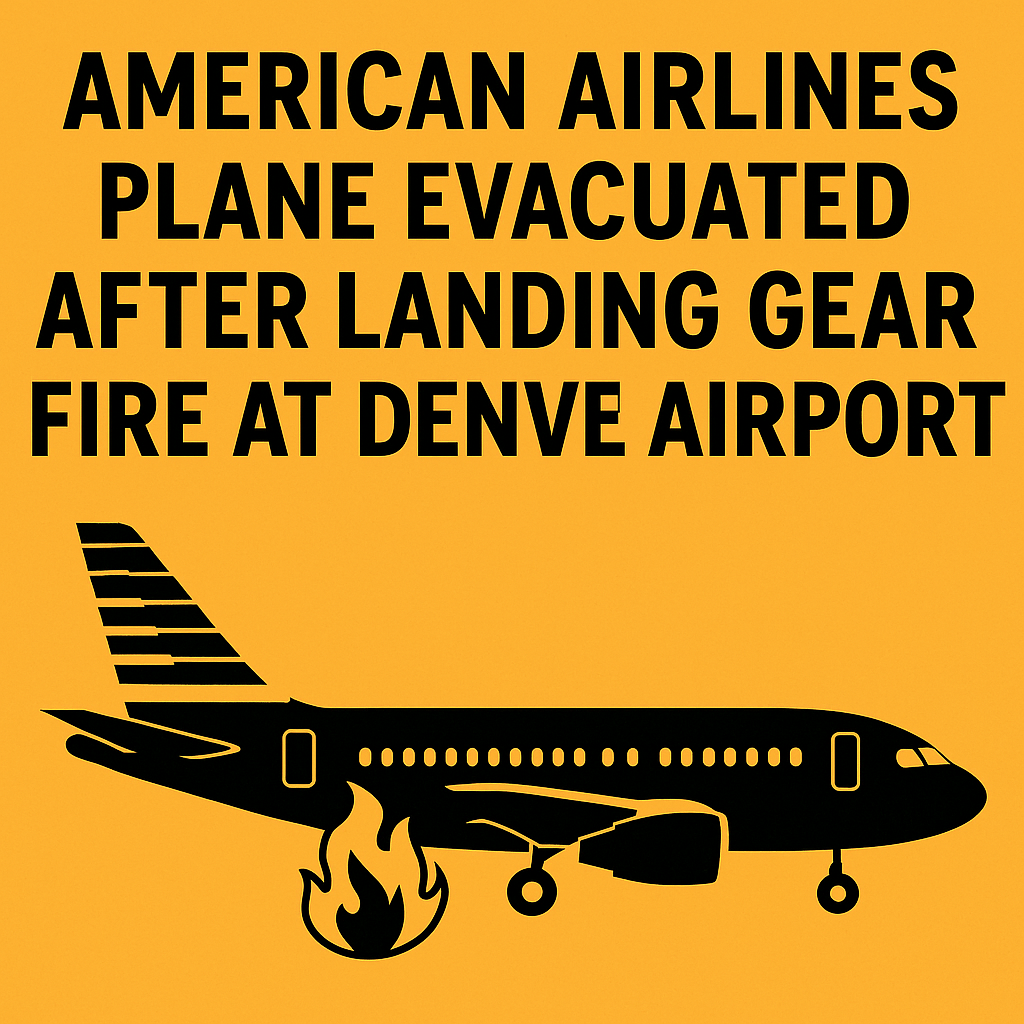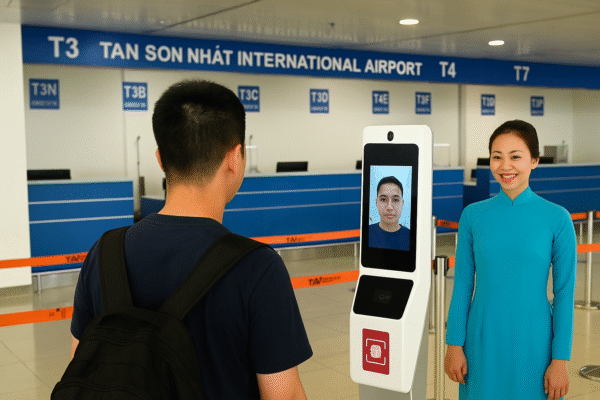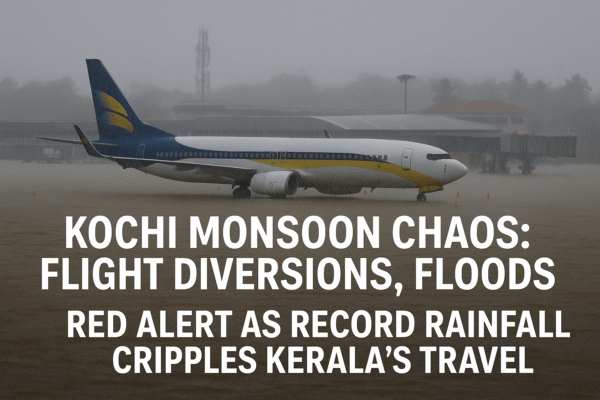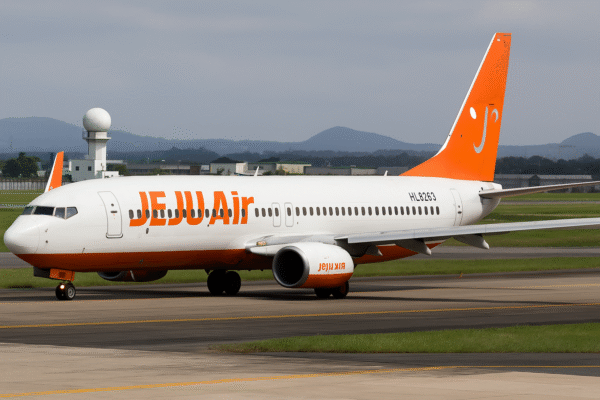The tourism and aviation sectors between Thailand and South Korea are facing renewed uncertainty following a troubling revelation in the investigation of the Jeju Air Flight 7C2216 crash. The flight, which departed from Bangkok’s Suvarnabhumi Airport and was bound for Muan International Airport in South Korea, suffered a runway overrun after a dual engine shutdown—despite one engine remaining operational.
The update by South Korea’s Aviation and Railway Accident Investigation Board (ARAIB) has intensified criticism of Jeju Air and raised regional aviation safety concerns, with fallout already impacting Thai tourism bookings and low-cost carrier confidence.
Crash Overview: Engine Was Still Functional Before Shutdown
ARAIB’s preliminary report confirmed that both engines on the Boeing 737 sustained bird-strike damage during final approach on July 19, 2025. The right engine caught fire and emitted smoke due to internal damage, while the left engine remained functional until pilots shut it down. This decision, taken under emergency stress, removed the aircraft’s final thrust capability just minutes before it crash-landed and collided with a localizer antenna structure beyond the runway at Muan International Airport.
Further complicating the investigation, both the cockpit voice recorder (CVR) and flight data recorder (FDR) stopped recording four minutes before impact, potentially due to power system failure triggered by the shutdown of both engines.
Pilots Under Scrutiny Amid Public Outcry
While ARAIB has not yet issued a final determination on pilot error, news that one engine remained operable has provoked outrage. Jeju Air’s pilot union claims authorities are rushing to blame the flight crew without fully evaluating systemic safety lapses, including inadequate infrastructure and flawed emergency procedures.
A planned ARAIB press conference was canceled following emotional protests by families of the six deceased, including two Thai nationals—a university student and a mother of two—who were among the 178 passengers onboard. Victims’ families are demanding more transparency, calling for a full investigation into the role of airport infrastructure and emergency response procedures.
Bangkok Tourism Hit by Jeju Air Repercussions
The crash has triggered major disruptions across Thailand’s tourism sector. Within 48 hours of the incident, Jeju Air recorded over 68,000 ticket refunds, many of which were outbound flights from Bangkok to South Korea. Major tour operators in Thailand—particularly in Bangkok, Phuket, and Chiang Mai—have reported growing hesitancy among South Korean travelers and cancellation of package tours.
Thailand has long been a favored destination for Korean tourists, with over 1.4 million arrivals from South Korea in 2024, according to the Tourism Authority of Thailand (TAT). However, the Jeju Air crash threatens this momentum, especially among budget-conscious travelers who often rely on low-cost carriers.
Regulatory and Structural Reforms Underway in South Korea
In response to the crash, South Korea’s Ministry of Land, Infrastructure and Transport (MOLIT) is pushing for structural changes at regional airports. This includes the removal of solid runway-end barriers like the antenna array Jeju Air struck during the overrun. The ministry also announced plans for:
- Advanced bird-strike prevention systems at major airports
- Enhanced training protocols for engine failure procedures
- Updated simulator standards for low-visibility landings
Jeju Air CEO Kim Dong-jin has publicly apologized and pledged full cooperation with authorities. He also committed the airline to overhauling its training programs and increasing transparency about safety practices.
Aviation Concerns Reverberate in Thailand
Thailand’s Civil Aviation Authority (CAAT) is closely monitoring the investigation’s progress and may impose new requirements for carriers flying into its airports, especially those operating high-traffic routes like Bangkok–Seoul or Phuket–Busan.
Thai officials are particularly focused on whether low-cost carriers flying between Thailand and South Korea meet rigorous emergency training benchmarks and whether runways at key tourist airports can adequately handle aborted landings or equipment failures.
Trust and Safety: Rebuilding Cross-Border Tourism
Industry analysts warn that the psychological effect of the crash may deter travelers for months. “Even a single high-profile accident involving a budget airline can shift consumer confidence,” noted Dr. Supachai Nopparat, an aviation risk consultant based in Bangkok. “Perception matters as much as statistical safety records in the tourism sector.”
In response, Thailand’s Ministry of Tourism is expected to launch a new campaign targeting South Korean markets, emphasizing destination safety, reliable air travel, and luxury tourism upgrades. Collaboration with Korean travel agencies may also include safety briefings and digital content to restore traveler confidence.
Conclusion: A Wake-Up Call for Low-Cost Aviation Safety
The Jeju Air crash investigation is far from over, but its impact on the aviation and tourism sectors is already evident. That the aircraft had one functional engine shut down in an emergency landing scenario has shocked professionals and the public alike, raising critical questions about airline protocols, training, and emergency decision-making.
As Bangkok and South Korea’s regional tourism hubs navigate this crisis, it is clear that restoring trust will take more than technical fixes—it will require transparency, cooperation, and systemic improvements in the fast-growing low-cost aviation sector. For now, travelers from Thailand to South Korea are watching closely, and tourism recovery efforts will depend heavily on how both nations respond in the coming months.
For more travel news like this, keep reading Global Travel Wire







